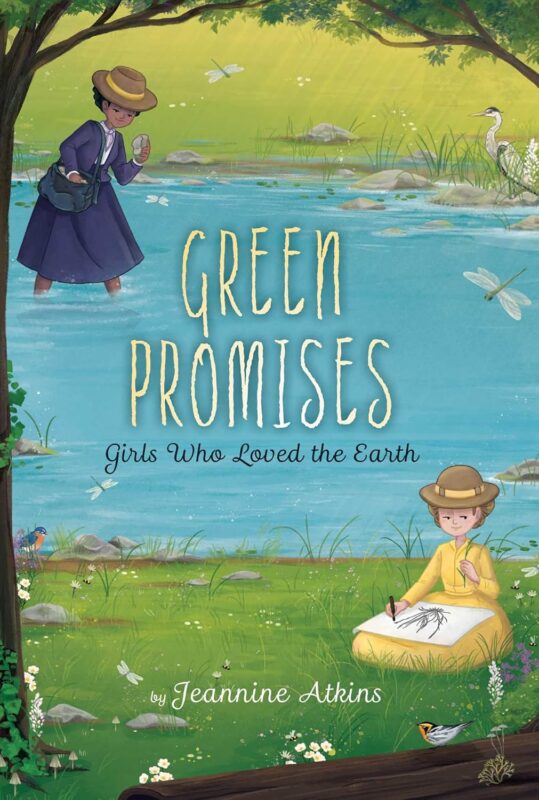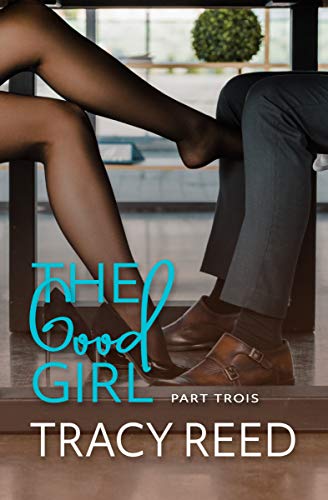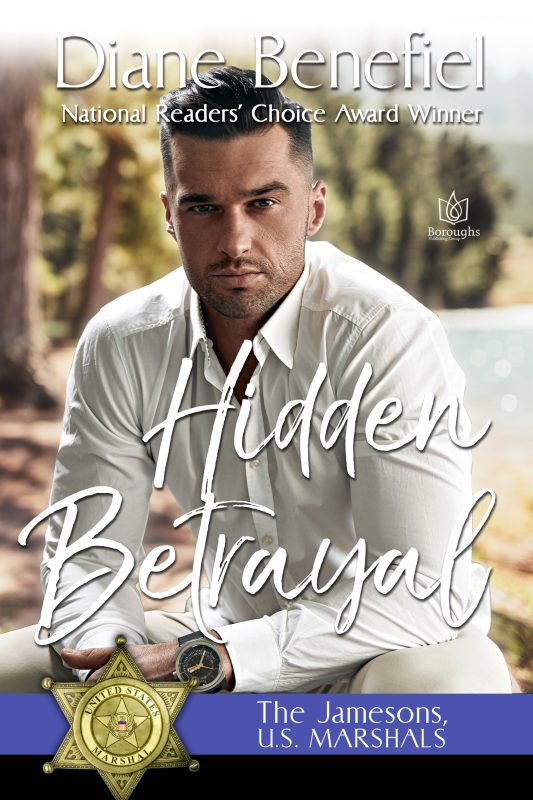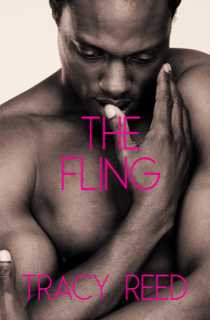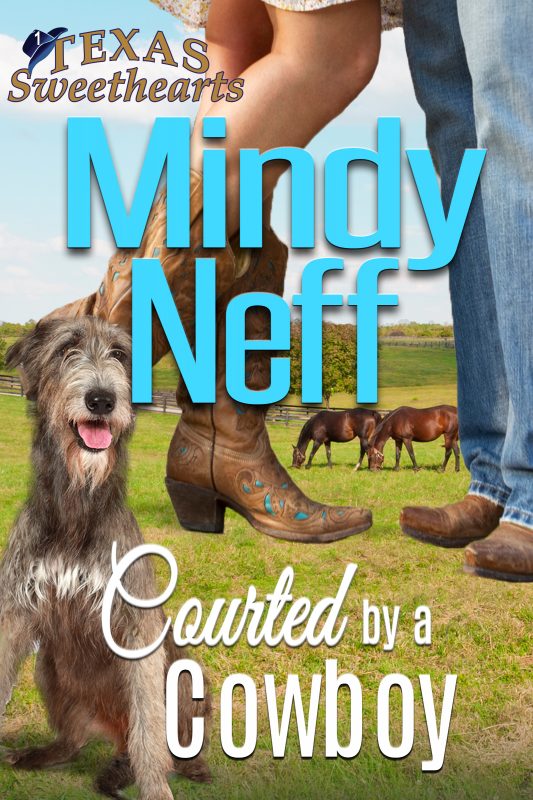My Highlights of RWA National in New York by Kitty Bucholtz
July 9, 2011 by Kitty Bucholtz in category It's Worth It by Kitty Bucholtz tagged as It's Worth It Tessa Dare asked me to write up a little bit about my favorite workshops from last week’s RWA National Conference in New York. She was going to share my thoughts at the meeting so I could be there “virtually.” Thanks, Tessa! For those of you not at the meeting today, I thought I’d share with you here.
Tessa Dare asked me to write up a little bit about my favorite workshops from last week’s RWA National Conference in New York. She was going to share my thoughts at the meeting so I could be there “virtually.” Thanks, Tessa! For those of you not at the meeting today, I thought I’d share with you here.
I had three favorite workshops at National this year. The first was called “Buy This Book!” It was a 2-hour role-playing workshop with a mock editorial board. Four volunteers (I got to be one of them, thanks to Marianne Donley!) got to pitch their book to a pretend board made up of an actual editor, two agents, and a published author. Other workshop attendees pretended to be other board members – Director of Marketing, Director of Special Sales, Director of Publicity, etc.
The key is that the volunteer pitching her book had to pretend to be the editor who wanted to acquire it, so you had to present your manuscript and answer questions about it in the third person. One woman presented a manuscript called “Karma is a Bitch” and before she’d finished the entire presentation, agents were already fighting over her! It was fun to watch… but a hard act to follow. 🙂 If this workshop was recorded (and there’s a chance it wasn’t), you should listen to the workshop once the CDs come out. There is a lot to learn about how to present your book to a potential agent or editor, and how to help position your book in the market.
My other favorite workshop was also two hours, “How Do You Mend a Broken Scene?” presented by Roxanne St. Claire. Rocki is an excellent speaker and was very passionate about her topic, but she got personal with her writing so it wasn’t taped and her handout isn’t on the CDs. She handed out five scenes she’s written over the years, a first draft of each and the final draft of each. She also told us the notes she was given from her agent or editor, or notes she’d given herself after reading the scene and knowing something wasn’t quite right.
The notes were on things like “emotional opportunities missed,” “hero is acting unheroic,” and “no additional conflict is introduced” in the scene. Then she read through the new version of the scene highlighting the changes she made. Her point was that sometimes she only had to change a few words here and there, and sometimes she did a complete rewrite of the scene. She was trying to show us how to figure out how much needs to be changed in our own scenes depending on the issue that needs to be addressed. If you can attend Rocki’s workshop sometime, I think you’ll all LOVE it!
I got something out of every workshop I attended, bar one. (That one was because the presenter had an emergency and his replacement *read* the speech.) So I still would give the workshops 100% high marks – they were all GREAT. But I am so glad I attended Anna DeStefano’s “After the Show…Key Things to Do AFTER a Writing Conference.” It seems like the sort of thing a newbie should attend, not most of us. But I was so glad I went! It was on the last day and I was absolutely exhausted by that time.
Anna’s point was – how do we take all this positive energy home with us? We’re all excited to be here with our industry peers, learning and networking, but how can we continue to feel so good about our writing life after we get home and we’re alone with our thoughts? The number one thing is to write as soon as you get home; we all know that. That’s the biggest part of our job. (And something we should apply every time we leave our OCC meeting!)
But she had a lot of other suggestions for keeping up the energy including Twitter hash tags like “amwriting” or “wewrite”, making a list of all the contacts you made at the conference, emailing *each of them* to say it was a pleasure to meet them, creating a To Do list but also a DONE list. We can get overwhelmed with how much there is to do to push our careers ahead; we need to take into account how much we’ve accomplished as well. It will help keep up the positive energy.
Anna suggested other kinds of lists and other small things to do that will help us keep the conference energy going at home, but her point was that we need to STAY POSITIVE in all of our forms of communication. This was a great workshop and one worth listening to when you buy the conference CDs.
This was a great conference and I got a LOT out of it. Going to our national conference is far more practical for becoming a better writer than any of the classes I took in my master’s degree. But if you couldn’t go, buy the CDs and listen to them and take notes and then APPLY THE INFORMATION! I can’t wait to see the next batch of OCC books on the bookshelf!
 Kitty Bucholtz is a writer and speaker, and a member of Romance Writers of America and Romance Writers of Australia. She co-founded Routines for Writers, a web site dedicated to helping writers write more, and she recently completed her M.A. in Creative Writing. You can follow Kitty on her web site or on Twitter at @KittyBucholtz.
Kitty Bucholtz is a writer and speaker, and a member of Romance Writers of America and Romance Writers of Australia. She co-founded Routines for Writers, a web site dedicated to helping writers write more, and she recently completed her M.A. in Creative Writing. You can follow Kitty on her web site or on Twitter at @KittyBucholtz.
It’s a Matter of Degree
June 9, 2011 by Marianne H. Donley in category Archives tagged as It's Worth It, Kitty Bucholtzby Kitty Bucholtz
By the time you read this, I’ll be done with all of my homework and on my way to my final class. I’ll have my master’s degree! Yay!!
But right at this moment, it feels miles away. Not millions of miles away, but not just a few steps either. I’ve gone to the last session of one class and turned in my last assignment there. I have everything done for my Thursday class, literally the last session of school I’ll have before I’m gone for good. But in less than eight hours I have to turn in my last – as yet unfinished – homework assignment. The important one. My “professional project.”
It’s been a hard class for me and I’ve complained way too much about it. But it would be the same problem for anyone who went to a writer’s group or got a critique from a friend who just doesn’t read your kind of writing. They don’t know they’re not helping you, even maybe making you want to give up. They’re being really nice and sometimes they have something very insightful to say that actually makes sense to you.
But in the end, you have to find a new group, people who understand your genre enough to know how to critique it in terms of what publishers are buying. You may have to go through a few more hard times until you find the right bunch.
The morning after my last class I fly to LA and then New York. I’ll go to my old Romance Writers of America chapter and I’ll love on all my old friends, but I’ll have to keep in mind that few of them write the kind of non-sex non-romance somewhat humorous urban fantasy I’m writing right now. Then I’ll go to my favorite writer’s retreat, a whole bunch of Christian writers who are my family. They’re sooo supportive but don’t really write much or read much like what I’m writing.
Then I’ll fly to New York for the big Romance Writers of America National Conference. Though the title implies all things romance, there are a lot of writers in that 10,000+ member organization who write other things, including work similar to mine. That’s the super awesome part! The flip side is that I don’t know very many of them, so I have to seek them out. Luckily, I just joined the Young Adult RWA group. I think those people will “get me” in a way many of my academic friends don’t. (Though I’ve had some really encouraging feedback from some of my school friends!)
So when it comes down to it, it’s all a matter of degree. When I need to talk to friends about why I write what I write and how I can be encouraged and work harder and find joy, I seek out my Christian writer friends. When I want to discuss the publishing industry and talk shop about how to write better characters or add suspense, my RWA friends are the bomb. For networking and improving my professional presence, the RWA National Conference gets the job done every time.
When it comes to my academic colleagues – teachers and students – they are passionate about their work, just as I am. We haven’t always understood each other’s work, but we all knew we were on the same page when it comes to wanting to stretch and grow as writers. It’ll take more time to figure out and understand what exactly I learned over the last sixteen months. Time and distance will help me to see more clearly.
And that’s what I have to remember today. For the next few hours, I have to do the best I can as fast as I can. But once school is over, I’ll be able to take a breath, refocus my work on the market instead of the academic requirements, and get back into it with joy and energy. I expect that day to be Monday! LOL! I’m as curious as you are as to what I’ll write here next week. Where will I be in my headspace then? Surely less stressed out than I am right now. 🙂 See you then!
Kitty Bucholtz is a writer and speaker, and a member of Romance Writers of America and Romance Writers of Australia. She co-founded Routines for Writers (http://www.routinesforwriters.com/) a web site dedicated to helping writers write more. In 2011, Kitty will receive her Master of Arts in Creative Writing degree from University of Technology, Sydney.
0 0 Read moreCharacter Diamonds by Kitty Bucholtz
May 9, 2011 by A Slice of Orange in category Archives tagged as It's Worth ItI’ve heard a couple of different people talk about character diamonds over the years. David Freeman in his Beyond Structure weekend uses the diamond shape to suggest the major character traits you can use throughout the story to make the character interesting, consistent and sometimes a little unexpected.
In the screenwriting workshop I attended last month, Slaying the Dragon, the character diamond was used to show how character creates plot. The four points of the diamond are for recording a) the flaw that masks the character’s biggest fear, b) the biggest inner fear, c) the biggest need, and d) the plan the character develops to meet their need. This plan doesn’t work, of course, and as the character works his way along the hero’s journey he ends up having to change plans.
I have to come up with a new story for one of my classes so I’m going to sit down with my whiteboard and colored markers and draw out both kinds of diamonds. For each major character I’ll brainstorm what traits might be most interesting for each character, and what fears or problems. Then I’ll pick two major traits and – since I like writing humorous pieces – one odd or quirky trait.
The mask will be the same on both triangles. All of the traits from the first diamond will help me figure out what would naturally show up on the second diamond. All of those points together will help me develop plot points that naturally extend from the character.
Notice I used “naturally” twice? Nothing bothers me more than watching a character do things that I don’t believe they would do. Unless I’m the one who wrote the piece. 🙂

The Power of “Why?” by Kitty Bucholtz
April 9, 2011 by A Slice of Orange in category Archives tagged as It's Worth It
 Today I met with my friend Betsy for hot chocolate and brainstorming. We’re both in our last semester of our Master of Arts in Creative Writing degrees, so we’re both working on our “final project” book. We’ve read a little of each other’s work over the last 14 months, but it’s not like being in the same critique group for years: we don’t know each other’s stories inside and out.
Today I met with my friend Betsy for hot chocolate and brainstorming. We’re both in our last semester of our Master of Arts in Creative Writing degrees, so we’re both working on our “final project” book. We’ve read a little of each other’s work over the last 14 months, but it’s not like being in the same critique group for years: we don’t know each other’s stories inside and out.
So it was with some trepidation thatI started trying to explain-slash-figure-out my story in the back room of a nearby cafe. Twice Betsy said, “But why?” Why does the story have to be set in the future? Why do you need to have destroyed the government before the story begins?
I was getting frustrated because I didn’t know how to answer the questions (hence the world building brainstorming). I was too nervous to explain some of the reasons in my head because they sounded silly out loud – like that the second protagonist/mentor is an undercover angel. But my not explaining things was confusing to Betsy.
She finally stopped and said, wait, what did you want to brainstorm about, I’ll stop interrupting. But I saw the opportunity to really dig into the story (only because now I’ve had years of experience in missed opportunities), so I said, no, let’s figure out the answers to your questions. Maybe we’ll think of something fresh and new.
And in less than an hour, my dystopian futuristic fantasy that I knew very little about was suddenly a Kitty story. Not dystopian, not futuristic, but a world I could totally see in my head. I really knew the location now that we’d re-set it in Philadelphia, and I really knew the world now that we’d made it “now.” I understood the ways children could go missing and no one could find them, and I had believable reasons for how a secret underground group could exist in this small world we’ve created with our technology.
The story began to have my voice again. And that, perhaps, was the thing that had made me most nervous when I woke up this morning – it was a really interesting story, but not a Kitty story.
So now I’m sitting here with a glass of Australian wine, some Green& Black’s 85% dark organic chocolate, and episode 1 of several TV shows we own that have characteristics I’m interested in for my story. Oh, and an open notebook with a lot of writing in it. Life is awesome again.
What are you struggling to brainstorm? Can you try discussing your idea with someone who knows nothing about it so you can be forced to answer the question, why?
Tell us what you’re doing and what has worked for you!
 Kitty Bucholtz is a writer and speaker, and a member of Romance Writers of America and Romance Writers of Australia. She co-founded Routines for Writers (http://www.routinesforwriters.com/) a web site dedicated to helping writers write more. In 2011, Kitty will receive her Master of Arts in Creative Writing degree from University of Technology, Sydney.
Kitty Bucholtz is a writer and speaker, and a member of Romance Writers of America and Romance Writers of Australia. She co-founded Routines for Writers (http://www.routinesforwriters.com/) a web site dedicated to helping writers write more. In 2011, Kitty will receive her Master of Arts in Creative Writing degree from University of Technology, Sydney.
Favorite Author Crush Moments by Kitty Bucholtz
March 9, 2011 by A Slice of Orange in category Archives tagged as It's Worth ItAt Routines for Writers, February is always Author Crush Month. It’s our Valentine to writers. Last year Shonna and Stephanie and I talked about how much we learned from all of our Author Crush guests, but I never really wrote down the things that struck me. I just thought about them for a while…until something else used up that space in my brain. (My trip to beautiful Wellington, New Zealand, last week took up all the space for a few days! See my picture at left.) This year we decided we’d really think about it and write it up to share with you. Here is what I learned during Author Crush month this year.
Andrea Nasfell, February 2 – There is no time for indecision. I like that. I think I’m going to spend a little more time brainstorming before I begin writing and then be confident with the decisions I made and keep writing. I’ve spent far too much time the last few years second-guessing myself and my writing. (Being in school again has also emphasized this point for me.)
Janice Hardy, February 4 – Spend time make your first line great! I love first lines myself, and I love working and working on mine until I just love my final choice. It’s a good way to spend your driving time or waiting time.
Larry Brooks, February 7 – His #1 tip is Every Scene Should Have a Succinct Mission. That’s another way to say something I’ve read before, but the way Larry explains it made my entire book rush through my head as I considered whether I’d accomplished this. I know what I want to go change tomorrow! (Remember, Larry will be our guest for the next four Tuesdays in March!)
Janice Cantore, February 9 – What an encouraging story that books you’ve written and had rejected still may get picked up!
Erin Bow, February 11 – No one had me laughing out loud as much as I did when I read Erin’s office is in a pole-dancing studio! That is awesome! Just the thought of it makes my imagination take flight.
Justine Toh, February 16 – For someone who writes as funny as Justine, it cracks me up that she spends so much time avoiding writing. But it also makes me feel better about my own procrastination issues. 🙂
Brad Zockoll, February 18 – I loved his “what if†examples! And I totally get that feeling – When I write, I feel God’s pleasure. It’s a good reminder to get me sitting down writing every day – just remember how good it can feel once you get into it each day.
Mitchell Bonds, February 21 – Take control of your work space. Yes, I need to do that. I share an office with my husband right now, but this weekend I told him that our next home needs to have a space that is only for my writing. Meanwhile, I need to work harder at keeping my desk clear. I don’t know why but it makes me feel more free in my writing. A cluttered surface makes my thoughts feel cluttered. Weird? True.
Kathleen Wright, February 22 – I love the G-shells as expressions of what God’s grace can do in our lives. What a fun example! And what an encouraging story about giving up and finding out God and your writing haven’t given up on you.
Shanna Swendson, February 24 – We’re always reminded to protect our writing time, but Shanna hit my nail on the head when she said we also need to protect it from ourselves! This week I’ve been closer to protecting my writing time (inasmuch as I actually tried). Starting tomorrow, I’m going to succeed in protecting my writing time from ME.
Jackina Stark, February 25 – When Jackina said she didn’t really have a writing routine, but she managed to write 4-5 hours a day when she worked full-time, I was shocked. What else can I let go of and stop spending my time on so that I can free up more time for writing? Or to make it work for me – how can I look at my writing as more appealing than the other things I spend my time on (like watching what I consider to be awesome TV, or trying to respond to every single email I get, or reading all the interesting articles and blogs that don’t actually help me get words down on paper)?
Kathy Tyers, February 28 – I’ve become a fan of written goals, but I love Kathy’s attitude that they can be written in pencil. Awesome. I’m a big fan of flexibility in all areas of life. I think it lends a more relaxed tone to life. And I like relaxed better than stressed out. 🙂
There’s my take on what I learned this month. It’s a lot to think about…until Author Crush Month next year.
0 0 Read moreAffiliate Links
A Slice of Orange is an affiliate with some of the booksellers listed on this website, including Barnes & Nobel, Books A Million, iBooks, Kobo, and Smashwords. This means A Slice of Orange may earn a small advertising fee from sales made through the links used on this website. There are reminders of these affiliate links on the pages for individual books.
Search A Slice of Orange
Find a Column
Archives
Featured Books
GREEN PROMISES: GIRLS WHO LOVED THE EARTH
Rich in history, facts, and imagination.
More info →THE FLING
Every woman is beautiful. Sometimes it just takes the right man to show you just how beautiful you are.
More info →Newsletter
Contributing Authors
Search A Slice of Orange
Find a Column
Archives
Authors in the Bookstore
- A. E. Decker
- A. J. Scudiere
- A.J. Sidransky
- A.M. Roark
- Abby Collette
- Alanna Lucus
- Albert Marrin
- Alice Duncan
- Alina K. Field
- Alison Green Myers
- Andi Lawrencovna
- Andrew C Raiford
- Angela Pryce
- Aviva Vaughn
- Barbara Ankrum
- Bethlehem Writers Group, LLC
- Carol L. Wright
- Celeste Barclay
- Christina Alexandra
- Christopher D. Ochs
- Claire Davon
- Claire Naden
- Courtnee Turner Hoyle
- Courtney Annicchiarico
- D. Lieber
- Daniel V. Meier Jr.
- Debra Dixon
- Debra H. Goldstein
- Debra Holland
- Dee Ann Palmer
- Denise M. Colby
- Diane Benefiel
- Diane Sismour
- Dianna Sinovic
- DT Krippene
- E.B. Dawson
- Emilie Dallaire
- Emily Brightwell
- Emily PW Murphy
- Fae Rowen
- Faith L. Justice
- Frances Amati
- Geralyn Corcillo
- Glynnis Campbell
- Greg Jolley
- H. O. Charles
- Jaclyn Roché
- Jacqueline Diamond
- Janet Lynn and Will Zeilinger
- Jaya Mehta
- Jeannine Atkins
- Jeff Baird
- Jenna Barwin
- Jenne Kern
- Jennifer D. Bokal
- Jennifer Lyon
- Jerome W. McFadden
- Jill Piscitello
- Jina Bacarr
- Jo A. Hiestand
- Jodi Bogert
- Jolina Petersheim
- Jonathan Maberry
- Joy Allyson
- Judy Duarte
- Justin Murphy
- Justine Davis
- Kat Martin
- Kidd Wadsworth
- Kitty Bucholtz
- Kristy Tate
- Larry Deibert
- Larry Hamilton
- Laura Drake
- Laurie Stevens
- Leslie Knowles
- Li-Ying Lundquist
- Linda Carroll-Bradd
- Linda Lappin
- Linda McLaughlin
- Linda O. Johnston
- Lisa Preston
- Lolo Paige
- Loran Holt
- Lynette M. Burrows
- Lyssa Kay Adams
- Madeline Ash
- Margarita Engle
- Marguerite Quantaine
- Marianne H. Donley
- Mary Castillo
- Maureen Klovers
- Megan Haskell
- Melanie Waterbury
- Melisa Rivero
- Melissa Chambers
- Melodie Winawer
- Meriam Wilhelm
- Mikel J. Wilson
- Mindy Neff
- Monica McCabe
- Nancy Brashear
- Neetu Malik
- Nikki Prince
- Once Upon Anthologies
- Paula Gail Benson
- Penny Reid
- Peter J Barbour
- Priscilla Oliveras
- R. H. Kohno
- Rachel Hailey
- Ralph Hieb
- Ramcy Diek
- Ransom Stephens
- Rebecca Forster
- Renae Wrich
- Roxy Matthews
- Ryder Hunte Clancy
- Sally Paradysz
- Sheila Colón-Bagley
- Simone de Muñoz
- Sophie Barnes
- Susan Kaye Quinn
- Susan Lynn Meyer
- Susan Squires
- T. D. Fox
- Tara C. Allred
- Tara Lain
- Tari Lynn Jewett
- Terri Osburn
- Tracy Reed
- Vera Jane Cook
- Vicki Crum
- Writing Something Romantic
Affiliate Links
A Slice of Orange is an affiliate with some of the booksellers listed on this website, including Barnes & Nobel, Books A Million, iBooks, Kobo, and Smashwords. This means A Slice of Orange may earn a small advertising fee from sales made through the links used on this website. There are reminders of these affiliate links on the pages for individual books.



